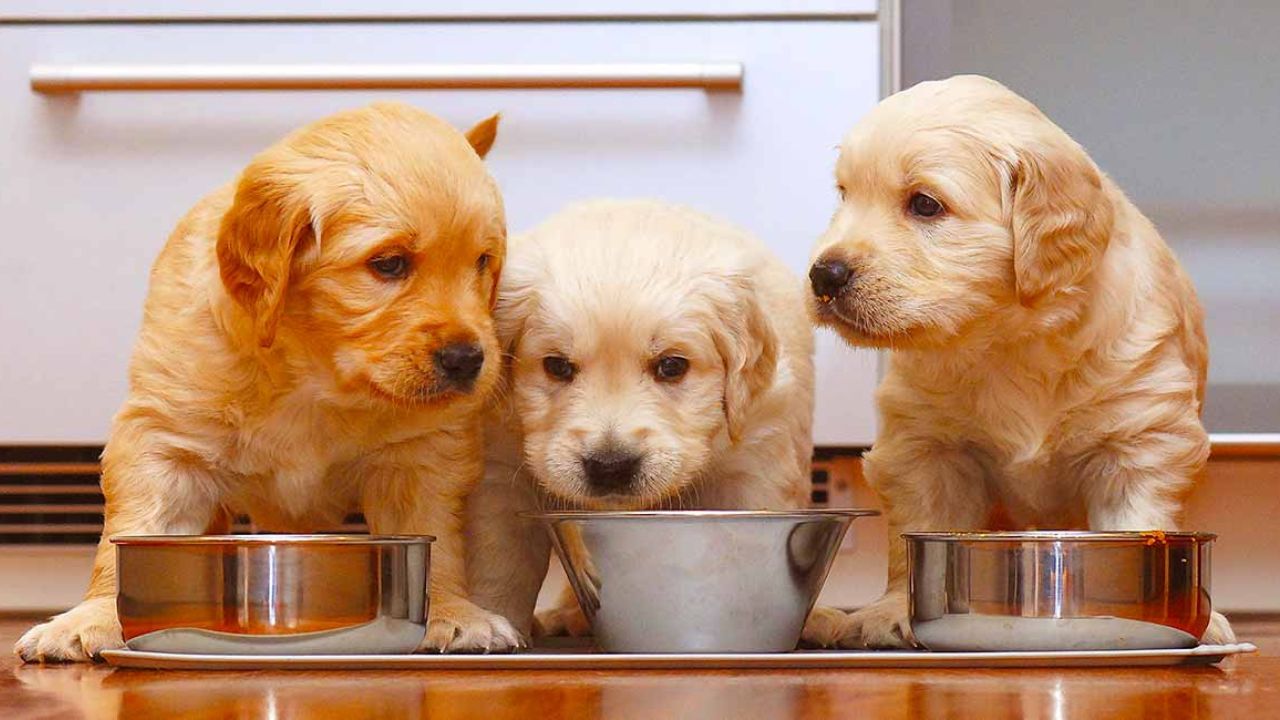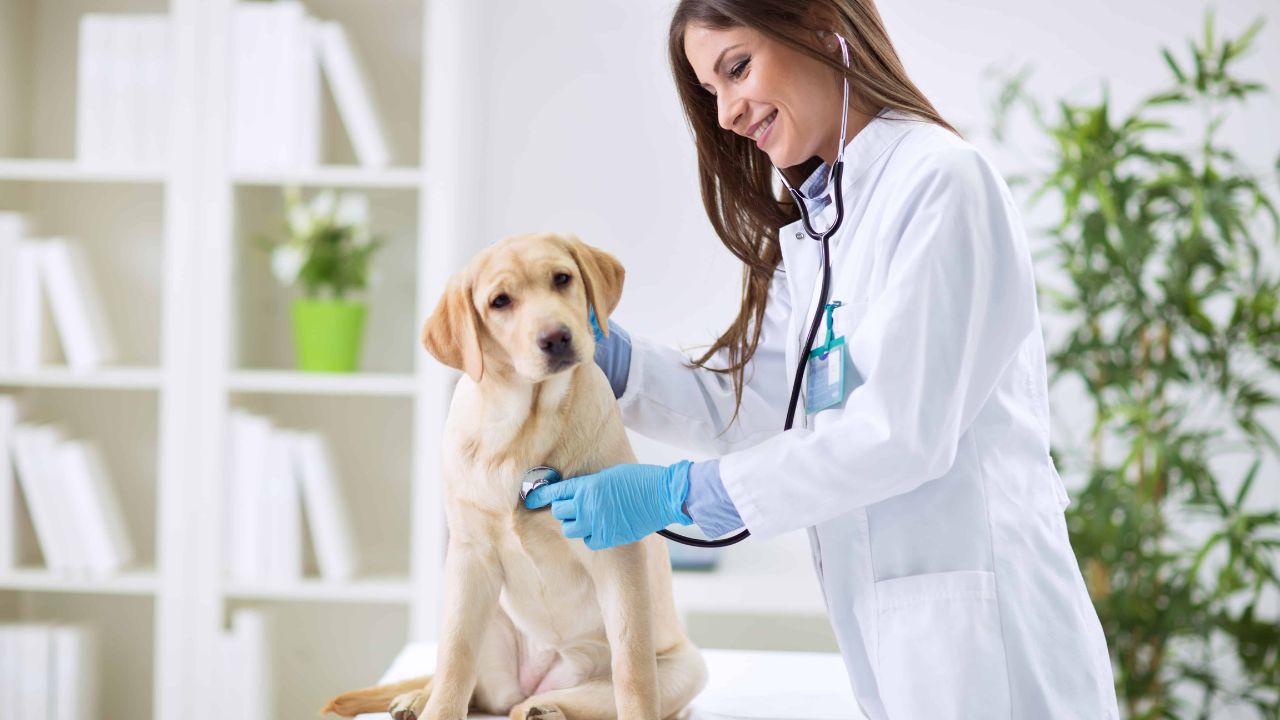Holistic puppy nutrition goes beyond just feeding your furry friend; it’s about providing a comprehensive, well-balanced diet that nurtures their physical and mental well-being. As responsible pet owners, understanding the key aspects of a holistic puppy diet is crucial for ensuring a happy and healthy life for your canine companion.
Welcoming a new puppy into your home is an exciting adventure. One of the most vital aspects of responsible puppy parenting is providing a diet that supports their growth and development. In this comprehensive guide, we’ll explore the world of holistic puppy nutrition, offering insights into the importance of a well-rounded diet and practical tips for implementation.
Holistic Nutrition for Puppies

Holistic nutrition focuses on the interconnectedness of various elements in a dog’s diet. It considers not only the macronutrients like proteins and fats but also micronutrients like vitamins and minerals. This holistic approach is designed to address the overall health and happiness of your puppy, promoting a balance that traditional diets may overlook.
Holistic nutrition for puppies involves providing a well-rounded, natural, and balanced diet that considers all aspects of their well-being. This approach focuses on high-quality protein sources, essential fatty acids, and a variety of vitamins and minerals to support optimal growth, development, and overall health for our canine companions.
Key Components of a Holistic Puppy Diet
High-Quality Protein Sources
Holistic Puppy Diet Guide Top-notch protein sources are essential for your puppy’s growth and development. Opting for high-quality proteins like lean meats, fish, and eggs ensures they receive the vital amino acids necessary for optimal health. Prioritizing these quality protein sources contributes to a strong and well-nourished foundation for your furry companion.
Puppies require a significant amount of Protein for their growth and muscle development. Opt for high-quality protein sources like lean meats, fish, and eggs to ensure they get the essential amino acids necessary for their well-being.
Essential Fatty Acids
Holistic Puppy Diet Guide Healthy fats, such as omega-3 and omega-6 fatty acids, are crucial for your puppy’s brain development and maintaining a shiny coat. To support these essential fatty acids, include sources like salmon oil and flaxseed in their diet.
Essential Fatty Acids, vital components for optimal health, are integral to a well-rounded diet. These essential fats, like omega-3 and omega-6, play a key role in supporting various bodily functions, from promoting brain development to maintaining a glossy coat. Including sources rich in these acids ensures comprehensive well-being for your puppy.
Vitamins and Minerals
A holistic diet should be rich in vitamins and minerals. Vegetables and fruits can provide a variety of these nutrients. However, it’s essential to research which ones are safe for your puppy, as some can be harmful.
Holistic Puppy Diet Guide Vitamins and minerals are essential for your puppy’s well-being and play a pivotal role in supporting various bodily functions. These micronutrients, derived from a balanced and holistic diet, contribute to growth, immune system strength, and overall vitality. Ensuring your puppy receives adequate vitamins and minerals fosters a foundation for a healthy and happy life.
Choosing the Right Puppy Food
Reading Ingredient Labels
Holistic Puppy Diet Guide Take the time to read and understand the ingredient labels on commercial puppy foods. Look for recognizable, high-quality ingredients, and avoid those with excessive fillers, preservatives, or artificial additives.
Examining ingredient labels is a crucial aspect of ensuring your puppy’s well-being. By carefully reviewing these labels, you empower yourself to make informed decisions about the food you provide for your furry friend, avoiding harmful additives and prioritizing wholesome ingredients for a healthier and happier canine companion.
Identifying Common Additives to Avoid
Holistic Puppy Diet Guide Avoid ingredients like artificial colors, flavors, and byproducts, as they may contribute to allergies and digestive issues. Choose puppy food that prioritizes natural and wholesome components.
Recognizing additives to steer clear of is crucial in maintaining a holistic puppy diet. Be vigilant in examining ingredient labels and avoiding harmful substances like artificial colors, flavors, and byproducts. A discerning eye ensures your puppy’s nutrition is free from potentially detrimental additives, promoting their overall well-being.
Homemade vs. Commercial Puppy Diets
Deciding between homemade and commercial diets involves weighing the pros and cons of each option.
Pet owners face a crucial choice when deciding between homemade and commercial puppy diets. Homemade options allow customization and control over ingredients, while commercial diets offer convenience. Consider lifestyle and nutritional balance, and consult with a veterinarian for guidance on providing the best nourishment for your furry friend’s well-being.
Pros and Cons of Both Options
Commercial diets offer convenience, but homemade diets provide more control over ingredients. Consider your lifestyle and your puppy’s specific needs when making this decision.
Both choices have advantages and disadvantages, emphasizing the need for careful consideration. Assessing the positive and negative aspects of both options is essential to making an informed decision, ensuring that the chosen approach aligns seamlessly with individual preferences, lifestyles, and the specific needs of your beloved puppy.
Tips for Preparing a Balanced Homemade Diet
If you opt for a homemade diet, consult with a veterinarian or canine nutritionist to ensure it meets all your puppy’s nutritional requirements. Balance is key to preventing deficiencies or excesses.
Creating a well-rounded homemade diet for your puppy involves thoughtful planning and consideration of essential nutrients. Discover valuable insights and practical advice in our guide, providing you with effective tips to ensure your furry friend receives a balanced and nutritious homemade meal for optimal health and happiness.
Meal Planning for Puppies
Frequency of Meals
Puppies require frequent, smaller meals throughout the day to support their fast metabolism and energy levels. Establish a consistent feeding schedule based on their age and breed size. Meal frequency is a crucial aspect of a puppy’s holistic diet. Ensuring regular, well-timed meals supports their fast metabolism and energy levels. By offering smaller, more frequent portions throughout the day, pet owners contribute to the overall health and vitality of their furry companions, promoting optimal growth and development.
Portion Control Based on Age and Breed
Adjust portion sizes as your puppy grows. Be mindful of breed-specific nutritional requirements and consult your vet for guidance on proper portion control. Optimal portion control tailored to your puppy’s age and breed is pivotal for their well-being. Ensuring the right balance of nutrients supports healthy growth and prevents issues like obesity. Customize feeding amounts according to their developmental stage and specific breed characteristics for a happy and thriving canine companion.
Common Health Issues and Dietary Solutions
Common health issues in puppies can help tailor their diet for optimal well-being. Frequent Health Challenges and Nutritional Remedies for Puppies: Explore prevalent health issues affecting young dogs and discover effective dietary solutions to address them. Uncover insights on maintaining your puppy’s well-being through a holistic and balanced nutrition approach.
Addressing Allergies and Sensitivities
Holistic diets can help alleviate allergy symptoms. Identify and eliminate potential allergens from their diet, such as grains or specific proteins. Dealing with Allergies and Sensitivities involves identifying and mitigating adverse reactions in your puppy’s diet. Discovering and eliminating potential triggers, such as specific proteins or grains, is crucial for fostering your pet’s well-being and ensuring a holistic approach to their nutritional needs.
Supporting Joint Health and Mobility
Include ingredients like glucosamine and chondroitin to support joint health, especially in larger breeds prone to hip dysplasia. These supplements can contribute to long-term mobility. Promoting optimal joint health and mobility is crucial for ensuring your puppy’s overall well-being. Implementing a holistic approach to their diet, enriched with ingredients like glucosamine and chondroitin, contributes to enhanced joint function, supporting your furry friend’s agility and flexibility as they grow and play.
Transitioning to a Holistic Diet
Gradual Introduction for a Smooth Transition
Switching your puppy’s diet should be a gradual process. Mix their current food with the new holistic option over several days to prevent digestive upset. Introduce changes gradually for a seamless transition in your puppy’s diet. Ease them into new foods to avoid digestive disruptions and ensure a smooth shift. The gradual introduction allows your furry friend to adapt comfortably, promoting a positive and stress-free adjustment to their holistic nutrition plan.
Monitoring Puppy’s Response
Keep a close eye on your puppy’s reaction to the new diet. Look for changes in coat quality, energy levels, and digestive patterns. If any concerns arise, consult your vet. Observing how your puppy reacts to dietary changes is crucial for their well-being. By closely monitoring your furry friend’s response to a new diet, you can identify any potential issues, ensuring a smooth and healthy transition. Pay attention to changes in energy levels, coat condition, and digestive patterns to provide the best care for your growing companion.
Holistic Treat Options
Healthy Treat Alternatives
Choose treats made from wholesome ingredients. Options like dehydrated meats or homemade treats with natural ingredients can serve as healthy rewards.
Nutritious alternatives for pet treats with our “Healthy Treat Alternatives.” Discover a variety of wholesome options that prioritize your furry friend’s well-being. From dehydrated meats to homemade creations, these alternatives ensure your pet enjoys tasty rewards without compromising on health. Treat them right with goodness in every bite!
DIY Treat Recipes
Get creative with homemade treat recipes. Use ingredients like peanut butter, pumpkin, and oats to make tasty and nutritious treats for your pup.
Crafting your pup’s snacks just got delightful with these engaging and easy-to-follow DIY treat recipes. Elevate your dog’s treat game by preparing wholesome, delicious goodies at home. Tailored to suit your furry friend’s tastes, these recipes ensure a happy, healthy, and tail-wagging experience for your canine companion.
Hydration and Its Role
Importance of Water Intake for Puppies
Ensure your puppy has constant access to fresh water. Hydration is vital for digestion, nutrient absorption, and overall well-being.
Ensuring an adequate water intake is crucial for the well-being of puppies. Proper hydration supports digestion, nutrient absorption, and overall health. It plays a vital role in maintaining their energy levels, promoting optimal growth, and preventing dehydration-related issues. Prioritizing water availability contributes significantly to a puppy’s overall vitality and vitality.
Signs of Dehydration and Prevention
Watch for signs of dehydration, such as lethargy or dark yellow urine. If you notice these signs, encourage more water intake and consult your vet if issues persist.
Recognizing signs of dehydration in your puppy is crucial for their well-being. Watch for indicators like lethargy and dark yellow urine. Timely prevention involves ensuring your furry friend has constant access to fresh water and promoting proper hydration, which is essential for digestion and overall health.
Physical Exercise and Nutritional Balance
Link Between Diet and Energy Levels
A holistic diet contributes to your puppy’s energy levels and supports an active and playful lifestyle. For optimal health, combine proper nutrition with regular exercise.
The correlation between a pet’s diet and their energy levels is a crucial aspect of their overall well-being. The nutrients derived from a balanced diet directly impact a dog’s vitality and playfulness, underscoring the importance of thoughtful nutrition in sustaining optimal energy levels for a happy and active life.
Ideal Exercise Routines for Puppies
Tailor exercise routines based on your puppy’s breed and age. Regular play, walks, and interactive activities keep them mentally and physically stimulated.
Optimal workout routines for puppies are essential for their overall health and vitality. Crafting ideal exercise sessions involves considering your pup’s breed and age and tailoring activities to keep them mentally stimulated and physically active. Regular play, walks, and interactive engagements contribute significantly to a happy and well-balanced puppy lifestyle.
Grooming and Dietary Impact
Maintaining a Healthy Coat Through Nutrition
Nutrition plays a crucial role in coat health. Omega-3 fatty acids, found in fish oil, contribute to a shiny coat and reduce shedding. Nourishing your puppy’s coat through proper nutrition is essential for promoting lustrous and vibrant fur. A well-balanced diet, rich in omega-3 fatty acids found in sources like fish oil, supports coat health and reduces shedding, ensuring your furry companion boasts a glossy and well-maintained appearance.
Addressing Skin Issues with Dietary Changes
Skin problems can often be linked to diet. Adjusting your puppy’s food may help alleviate issues like itching or dry skin. Tackling skin problems through dietary adjustments is a holistic approach that emphasizes the direct connection between a dog’s nutrition and its skin health. By making strategic changes to your pup’s diet, you can effectively address and alleviate various skin issues, promoting a healthier and shinier coat.
Consulting with Veterinarians and Nutritionists

Regular Check-Ups for Monitoring Health
Holistic Puppy Diet Guide Schedule regular vet check-ups to monitor your puppy’s health. Discuss their diet and any concerns you may have about their overall well-being.
Routine health check-ups are crucial for ongoing monitoring of your puppy’s well-being. Regular veterinary visits help identify potential issues early, ensuring prompt intervention. These check-ups encompass a comprehensive examination, vaccinations, and discussions about your puppy’s diet and overall health, contributing to their long-term happiness and vitality.
Seeking Professional Advice for Customized Diets
For a tailored approach, consult with a veterinarian or canine nutritionist. They can provide personalized advice based on your puppy’s specific needs and health conditions.
Expert guidance for tailored dietary plans is crucial. Consulting with seasoned professionals ensures personalized advice for crafting custom diets that cater to specific needs. This collaborative approach enhances your puppy’s well-being, promoting optimal health through individually curated nutritional strategies.
Conclusion
Investing time and effort into understanding and implementing a holistic puppy diet pays off in the long run. A well-balanced, nutritious diet sets the foundation for a happy, healthy, and thriving furry friend. As pet owners, it’s our responsibility to provide the best for our puppies, and choosing a holistic approach to nutrition is a step in the right direction.
FAQ
What is Holistic Puppy Food?
The definition of “holistic” is “in consideration of the whole.” Dog diets marketed as “holistic” are supposed to be easily digestible, free of chemicals or fertilizers generated from sewage sludge, and made entirely of natural, human-grade components.
What Natural Food Should I Feed My Puppy?
Puppies also require higher amounts of fat, protein, vitamins, and minerals than do adult dogs. The right proportion of carbs (such rice, pasta, and potatoes) and proteins (like chicken, turkey, fish, and lean beef) should be included in a homemade puppy diet.
What is the Best-Balanced Diet for Puppies?
The best food to feed is a high-quality commercial kibble designed for puppies. This ensures all the nutrients your puppy needs for growth and development are present. You can add cooked meats and vegetables or rice as you wish; however, the main diet needs to be the commercially balanced kibble.
What are the Examples of Holistic Food?
The phrase is sometimes used to describe a diet that emphasizes entire, unprocessed foods such as fresh produce, whole grains, nuts, eggs, and unprocessed meats. Stated differently, “whole foods.”

